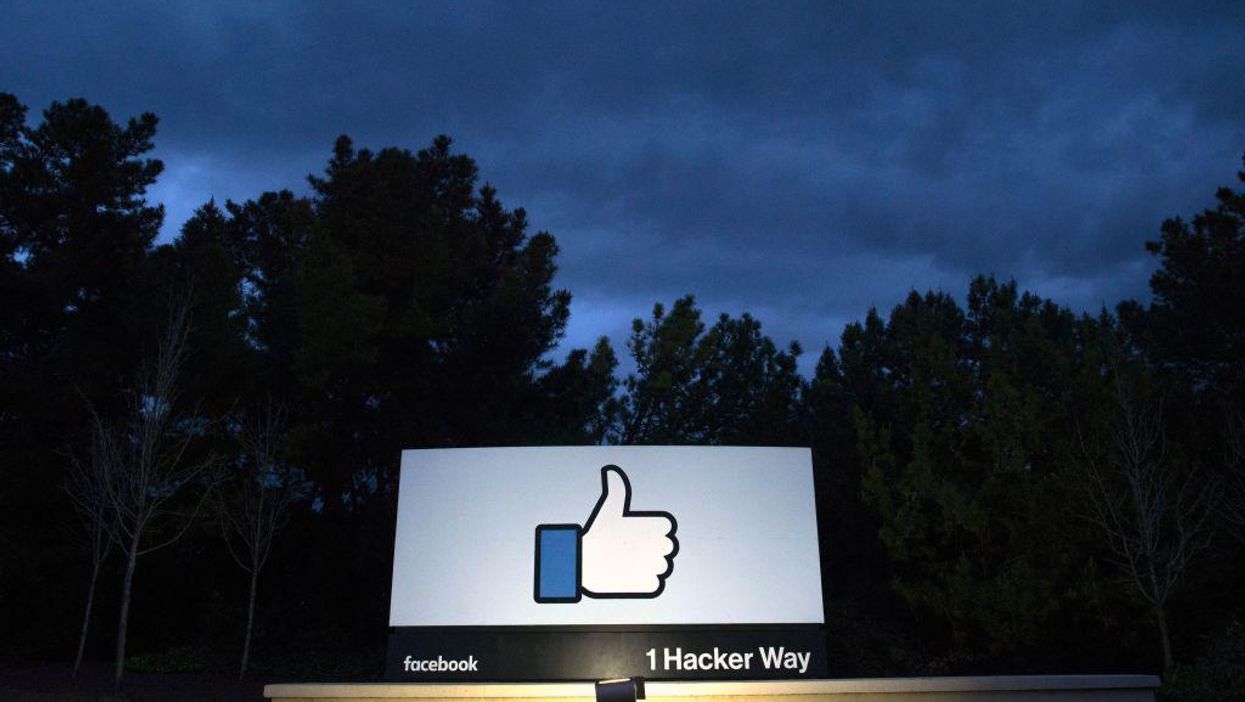
JOSH EDELSON/AFP via Getty Images

Former President Donald Trump will not be returning to Facebook in the immediate future after the company's oversight board upheld the decision to restrict Trump's access to his Facebook page and Instagram account.
However, the board also found that Facebook's decision to suspend Trump indefinitely was arbitrary and violated its own stated policies. It accused the company of applying a "vague, standardless penalty" on Trump and then seeking to avoid responsibility for its decision by handing the matter over to the oversight board. The board refused to tell Facebook what its policy should be and has ordered the company to review the matter and "justify a proportionate response that is consistent with the rules that are applied to other users of its platform" within six months.
In a statement responding to the ruling, Trump accused big tech companies of suppressing free speech.
"What Facebook, Twitter, and Google have done is a total disgrace and embarrassment to our Country. Free Speech has been taken away from the President of the United States because the Radical Left Lunatics are afraid of the truth, but the truth will come out anyway, bigger and stronger than ever before," Trump said. "The People of our Country will not stand for it! These corrupt social media companies must pay a political price, and must never again be allowed to destroy and decimate our Electoral Process."
The much-anticipated ruling creates a precedent for how Facebook will manage content from political leaders and may also create a framework for other social media platforms to follow.
Last year, Facebook spent $130 million to create and fund its independent oversight board, which is an international team of academics, law professors, journalists, human rights activists, and other experts with backgrounds related to global politics and digital content moderation. The purpose of the board is to review appeals to the social media platform's content moderation decisions and independently determine whether Facebook made the right decision according to its own policies. The board's decisions are binding, but Facebook is ultimately responsible for following the board's instructions.
On Wednesday, the oversight board ruled that Trump's social media posts on Jan. 6 during the violence at the U.S. Capitol "severely violated Facebook's Community Standards and Instagram's Community Guidelines," which prohibit praise or support of people engaged in violence.
"The Board found that, in maintaining an unfounded narrative of electoral fraud and persistent calls to action, Mr. Trump created an environment where a serious risk of violence was possible," the decision states. "At the time of Mr. Trump's posts, there was a clear, immediate risk of harm and his words of support for those involved in the riots legitimized their violent actions."
"Given the seriousness of the violations and the ongoing risk of violence, Facebook was justified in suspending Mr. Trump's accounts on January 6 and extending that suspension on January 7," the board said, but it added that "it was not appropriate for Facebook to impose an 'indefinite' suspension."
"It is not permissible for Facebook to keep a user off the platform for an undefined period, with no criteria for when or whether the account will be restored," the board explained before going on to criticize Facebook's actions.
In applying this penalty, Facebook did not follow a clear, published procedure. 'Indefinite' suspensions are not described in the company's content policies. Facebook's normal penalties include removing the violating content, imposing a time-bound period of suspension, or permanently disabling the page and account.
It is Facebook's role to create necessary and proportionate penalties that respond to severe violations of its content policies. The Board's role is to ensure that Facebook's rules and processes are consistent with its content policies, its values and its human rights commitments.
In applying a vague, standardless penalty and then referring this case to the Board to resolve, Facebook seeks to avoid its responsibilities. The Board declines Facebook's request and insists that Facebook apply and justify a defined penalty.
The board is requiring Facebook to undergo a review of its "arbitrary penalty" on Trump and within six months develop a clear and defined penalty for the former president consistent with its stated policies and "based on the gravity of the violation and the prospect of future harm."
In a statement responding to the decision, Facebook Vice President of Global Affairs and Communications Nick Clegg said Trump's Facebook and Instagram accounts will remain suspended while the company reviews the board's decision.
"We will now consider the board's decision and determine an action that is clear and proportionate. In the meantime, Mr. Trump's accounts remain suspended," he said.
The board also called on Facebook to clarify how content moderation decisions on users with large audiences are made.
"Facebook should publicly explain the rules that it uses when it imposes account-level sanctions against influential users," the board said. It further recommended that Facebook specifically explain how it assigns strikes and penalties against users and provide users with accessible information on how many violations, strikes, and penalties have been assigned to them, among other recommendations.
Republicans were quick to attack the decision.
"Our right to freedom of speech comes from the Constitution, not Facebook's 'Oversight Board,'" RNC Chairwoman Ronna McDaniel tweeted. "Big Tech has become an extension of the left's woke mob and Congress should hold them accountable."
House Minority Leader Kevin McCarthy (R-Calif.) accused Facebook of "acting like a Democrat Super PAC" instead of "a platform for free speech and open debate."
"A House Republican majority will rein in big tech power over our speech," he said.
Several Republican lawmakers called on Congress to break up Facebook's "monopoly" with an "antitrust agenda."
Mark Meadows, the former White House chief of staff under Trump, blasted the decision on Fox News, calling it a "sad day for America."
With conservative lawmakers infuriated over Facebook's decision, Meadows predicted that the "wild, wild West kind of regulatory environment" surrounding big tech companies is "going to change."